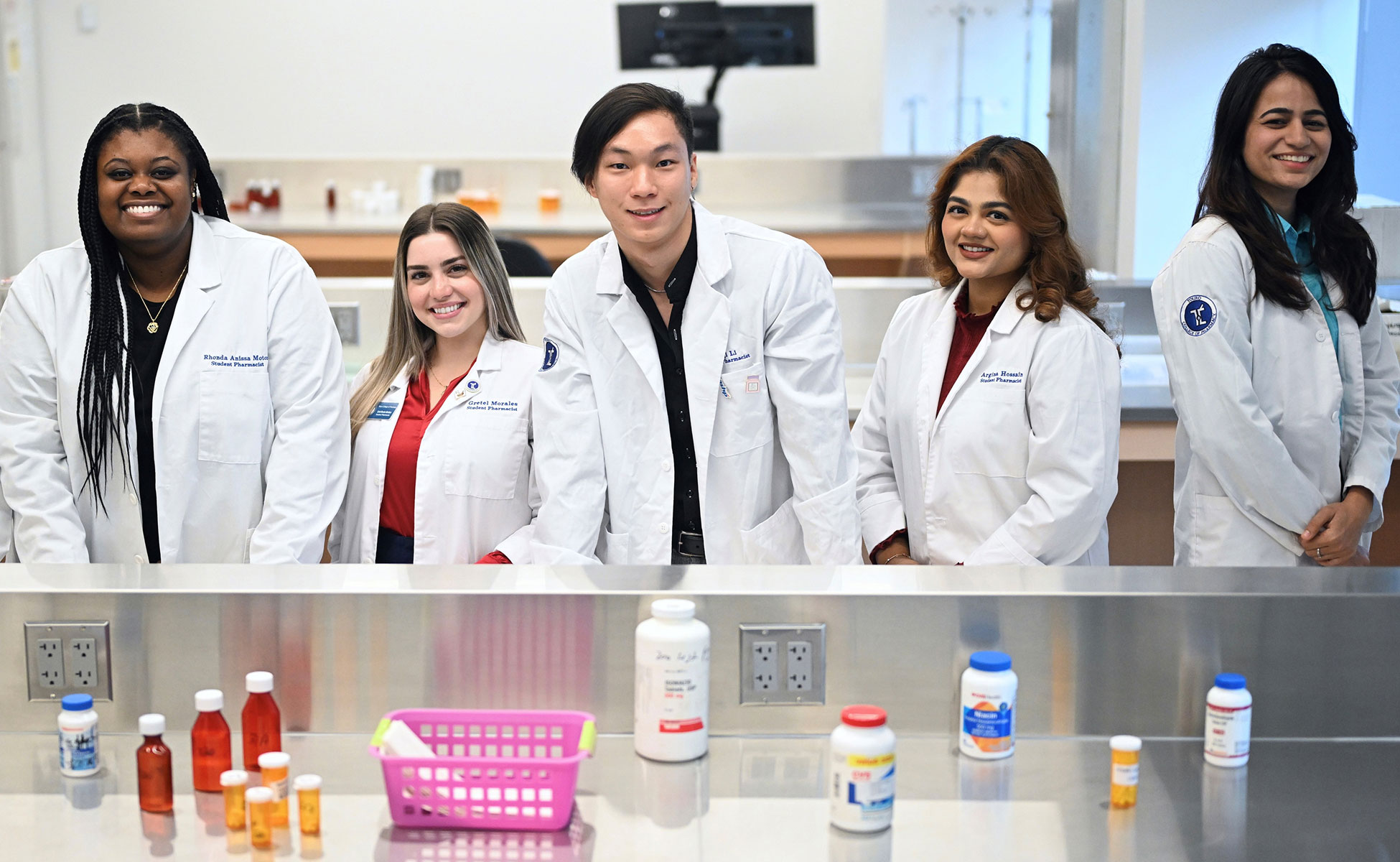Your identity as a pharmacist extends beyond your work duties and responsibilities. Being a pharmacist is not something you do, but who you are. Alongside what you will learn in the classroom and on your practice experiences, co-curricular activities help engage and immerse you in ‘being a pharmacist’ in a variety of settings and activities outside of the traditional classrooms and practice settings.
During each year at TCOP, you will participate in several co-curricular activities. These activities are designed to help develop your personal “pharmacist identity,” and give you an opportunity to put into action what you’ve learned.
Co-curricular activities complement the didactic and experiential curriculum and focus on traits every pharmacist needs to be a successful medical provider.
Pharmacists are:
- Problem solvers: pharmacists identify problems; explore and prioritize potential strategies; and design, implement, and evaluate a viable solution
- Educators: pharmacists educate all audiences by determining the most effective and enduring ways to impart information and assess understanding
- Advocates: pharmacists assure that the patient's best interest is represented
- Collaborators: pharmacists actively participate and engage as a healthcare team member by demonstrating mutual respect, understanding, and values to meet patient care needs
- Includers: pharmacists recognize social determinants of health to diminish disparities and inequities in access to quality care
- Communicators: pharmacists effectively communicate verbally and nonverbally when interacting with an individual, group, or organization
- Self-Aware: pharmacists examine and reflect on personal knowledge, skills, abilities, beliefs, biases, motivation, and emotions that could enhance or limit personal and professional growth
- Leaders: pharmacists demonstrate responsibility for creating and achieving shared goals, regardless of position
- Innovators: pharmacists engage in innovative activities by using creative thinking to envision better ways of accomplishing professional goals
- Professional: pharmacists behave and have values that are consistent with the trust given to the professional by patients, other healthcare providers, and society
Examples of co-curricular activities include:
- health fairs
- medication checks
- legislative and lobby days
- professional organization activities
- workshops and seminars
- community service
- global experiences
- awards/honors/scholarships
- non-credit research
- immunization events
- community initiatives (e.g. Walk to End Alzheimer’s, Chronic Kidney Disease Walk, Power to End Stroke)
- local and national competitions


